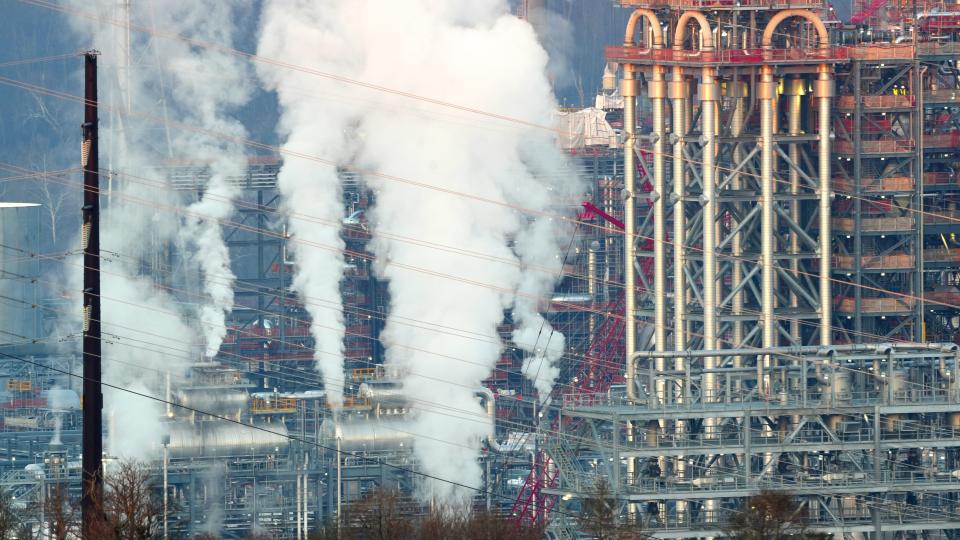We have a path to reduce climate pollution, it is time to launch market-based RGGI
Pennsylvania just completed a valuable experiment in stakeholder input and negotiation on the best path forward for growing Pennsylvania's economy and reducing climate pollution. The outcome was a consensus on the need to move forward with a cap-and-trade program for the power sector that can generate revenue to invest in the commonwealth's energy transition.
Following a campaign promise to convene stakeholders, Gov. Josh Shapiro organized a working group to discuss the Regional Greenhouse Gas Initiative, otherwise known as RGGI. The regional program, already used by several other states along the East Coast, encourages power plants to reduce their carbon pollution while using revenue from the program to fund the clean energy transition in those states. Across those states, the program has helped fund popular incentive programs that help constituents save money while reducing pollution, as well as critical infrastructure to address or prepare for climate change.
RGGI has been on the verge of launching in Pennsylvania for years. But to ensure the program is right for Pennsylvania, Gov. Shapiro sought important insight from across the state. The working group was remarkable for its diversity, drawing from labor leaders, environmental groups, energy industry representatives, and consumer advocates. It was a fitting group to meet the governor's goal of ensuring that Pennsylvania only moves forward with RGGI if the program meets the needs of the state's ratepayers, its workers, and its economy.
Urgent need to reduce climate pollution
First and foremost, the working group's findings reflect the urgent need to reduce climate pollution in Pennsylvania. Climate change poses a significant threat to our environment and communities, and taking decisive action is crucial. The market-based approach of RGGI has proven successful in neighboring states, making it the most effective path forward. By adopting RGGI, Pennsylvania can protect and create energy jobs, take real action to address climate change and ensure reliable and affordable power for consumers in the long term.

Moreover, the economic opportunities associated with cutting power sector emissions cannot be overlooked. The recent federal Infrastructure Investment and Jobs Act (IIJA) and Inflation Reduction Act (IRA) provide substantial funding for decarbonization efforts, with a significant portion allocated to clean electricity tax incentives. By participating in RGGI, Pennsylvania can secure nearly $1 billion in additional federal IRA tax credits, while saving $1.5 billion in electricity costs by 2030. These investments will not only drive emissions reductions but also create jobs and lower energy costs across the commonwealth.
That's why dozens of leading companies and institutions in Pennsylvania support the program as a market-based approach that will catalyze innovation and put Pennsylvanians to work building a more resilient and prosperous future. These businesses have set ambitious goals to procure renewable energy because they recognize the economic opportunity. RGGI will help businesses make those investments in Pennsylvania.
Furthermore, RGGI aligns with the state's climate goals and the need for increased climate ambition. Cutting power sector emissions by at least 80% is crucial to achieving economy-wide emissions targets, including the United States' Nationally Determined Contribution (NDC). Clean electricity generated through RGGI serves as the foundation for decarbonizing other sectors such as transportation, buildings, and industry through electrification. By embracing RGGI, Pennsylvania can lead the way in transitioning to a clean energy future and contribute to global efforts to combat climate change.
RGGI enables just energy transition
Finally, investing a significant portion (at least 40-50%) of RGGI revenues in underserved communities is crucial for achieving a just energy transition. By investing in historically marginalized and under-resourced communities, Pennsylvania can create jobs, improve health outcomes, and promote climate resilience. These investments will not only address environmental challenges but also stimulate economic growth and foster community development.
In that same vein, the working group agreed that it is also essential to incorporate input from environmental justice communities and advisory groups. Climate change disproportionately affects marginalized communities, exacerbating existing inequalities. RGGI should engage early and often with these communities to ensure equitable outcomes and reflect their needs in the program's updated model rule. Robust analysis of pollution hotspots and targeted measures to mitigate impacts are necessary to improve air quality and protect the health of marginalized communities. By prioritizing environmental justice, Pennsylvania can address historical injustices and create a more equitable and sustainable future for all.
More: A conservative argument for clean energy: Follow the market, fossil fuels no bargain
The RGGI working group's conclusions reflect the growing consensus on the need for climate action and the viability of cap-and-invest systems like RGGI. Pennsylvania must seize this opportunity to meet its climate goals and secure the economic and environmental benefits associated with clean energy. Staying the course on RGGI is not only the best way to combat climate change but also a vital step towards a sustainable and prosperous future for Pennsylvania. It is time for Pennsylvania to lead by example and demonstrate its commitment to a greener and more resilient future.
Mandy Warner is the director of climate and clean air policy at Environmental Defense Fund. Alli Gold Roberts is senior director of state policy at Ceres.
This article originally appeared on Erie Times-News: Environmental groups urge PA to launch RGGI to fight climate pollution

